
FACULTY READING LIST
Scott Calvin, Physics
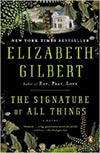
The Signature of All Things: A Novel by Elizabeth Gilbert
Malcolm Turvey, Film History
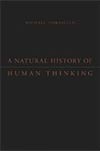
A Natural History of Human Thinking by Michael Tomasello
For years, Tomasello has been doing comparative studies of humans and apes, and he argues persuasively that cooperation in the pursuit of shared goals is unique to human beings.
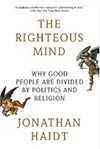
The Righteous Mind by Jonathan Haidt
Unlike Tomasello, Haidt sees emotion as key to morality, and he offers a compelling psychological explanation for tribalism in politics and human life more broadly.
Neil Arditi, Literature, Esther Raushenbush Chair in the Humanities
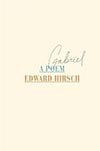
Gabriel: A Poem by Edward Hirsch
I loved this beautiful, wrenching elegy for the poet's son, dead at 22. Hirsch is uncompromising in his confrontation with loss. But his book-length poem is also memorable for its narrative vignettes, and its portrayal of an unlikely father-son relationship.
Drew Cressman, Biology
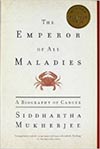
The Emperor of All Maladies: A Biography of Cancer by Siddhartha Mukherjee
This is one of my favorite books of all time. Winner of the Pulitzer Prize, it is a detailed account of the history and science of cancer and cancer treatment, but it comes off as neither excessively technical and academic nor excessively maudlin. Instead, it is an informative, compelling and fascinating read. Very highly recommended!
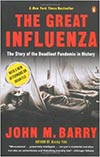
The Great Influenza: The Story of the Deadliest Pandemic in History by John Barry
No, not Ebola. The flu. This is a rich, comprehensive and authoritative examination of the 1918 influenza pandemic, in which Barry specifically focuses on its outbreak in America and the scientific community's efforts to respond. In doing so, he traces the formal rise of medical school education in the United States in the 18th and 19th centuries and how such programs paid dividends years later in establishing to the medical and scientific approaches that led to breakthroughs in our understanding of the influenza virus and other fundamental principles of biology. This is a wonderful, interesting, well written and relevant book. Don't miss it.
Ilja Wachs, Literature, Ilja Wachs Chair in Outstanding Teaching and Donning
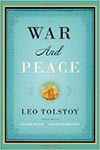
War and Peace by Leo Tolstoy
Perhaps the greatest life-affirming novels of all time

Middlemarch by George Eliot
A fascinating attempt by Eliot to use the novel as an educational tool to make us more empathetic.
Joan Silber '67, Writing, The Michele Tolela Myers Chair in Writing
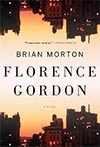
Florence Gordon by Brian Morton '78
A new novel by one of our best. For all its sharp and wry humor, this is a book very much about the great question of how integrity is kept.
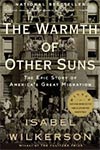
The Warmth of Other Suns: The Epic Story of America's Great Migration by Isabel Wilkerson
This is an eye-opening work of history, using direct accounts to detail the massive shift of African-Americans from the rural South to the urban North, 1915-1970. Journalist Wilkerson uses the methods of fiction--character, incident, and judicious arrangement of time.
Samuel Abrams, Politics
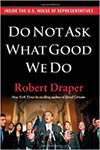
Do Not Ask What Good We Do: Inside the US House of Representatives by Robert Draper
This book explores the history of the 112 Congress which marked the GOP wave of 2010 with 87 freshman Republicans joining the House - many of which were Tea Party novices. Draper chronicles the debt ceiling struggle and how the GOP dug in to wage a battle again Obama and slow down legislation. The book is a fun though disturbing read about how polarized the elite institutions of American government are at the moment.
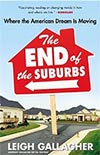
The End of the Suburbs: Where the American Dream is Moving by Leigh Gallagher
This is a fun accessible read about a major geographic change in the American landscape: namely a shift from the suburbs to the urbs. Americans are changing where and how they choose to live. By 2011, for the first time in close to a century, the rate of urban population growth outpaced suburban growth. And this is a course reversal of suburban growth. Gallagher shows that the demand for large single-family homes is in the decline and the urban move is not just tied to economic conditions. The consequences of this shift are huge for all aspects of life from how we interact and socialize, engage in commerce, transport, politics, and live our lives generally. While it is certainly not clear if this move away from the suburbs will continue and its magnitude overall, the book is thought provoking and worth a read.
Fiona Wilson, Literature
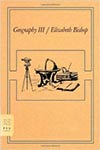
Geography III by Elizabeth Bishop.
I find myself moved by Bishop's wit and by her absolute fidelity to what she calls our "abidance" in this world.

The Translators of The Thousand and One Nights, an essay by Jorge Luis Borges.
In my current class on the history of fairytales, my students and I read this quite wonderful essay . "Chance," Borges writes, "has played at symmetries, contrasts, digressions. What might a man--a Kafka--do if he organized and intensified this play, remade it in line with the Germanic distortion, the unheimlichkeit of Germany?"

Kafka's Collected Short Stories
James Marshall, Computer Science
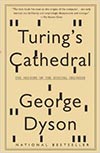
Turing's Cathedral by George Dyson.
This is a fascinating and detailed history of the birth of computing. It tells the story of the founding of the Institute for Advanced Study in Princeton, where John von Neumann, Alan Turing, and others worked on creating the first digital computers. Before reading this book, I hadn't fully appreciated the degree to which the development of the digital computer and the H-bomb were closely intertwined.
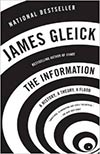
The Information by James Gleick
A detailed and thorough account of the development of Information Theory, computing and communications technologies, and the Internet, among other topics. It's really about the wide-scale impact of information processing in general. The first chapter in particular, called "Drums that Talk", is fantastic.
Bella Brodzki '72, Literature
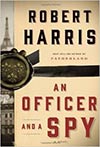
An Officer and A Spy by Robert Harris
It is an espionage thriller about the Dreyfus Affair.
Barbara Schecter '74, Director, Graduate Program in Child Development/Psychology
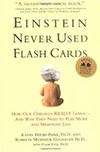
Einstein Never Used Flashcards: How Our Children Really Learn--and Why They Need to Play More and Memorize Less
by Roberta Michnick Golinkoff, Kathy Hirsh-Pasek, Diane Eyer
In Einstein Never Used Flashcards highly credentialed child psychologists, Kathy Hirsh-Pasek, Ph.D., and Roberta Michnick Golinkoff, Ph.D., with Diane Eyer, Ph.D., offer a compelling indictment of the growing trend toward accelerated learning.
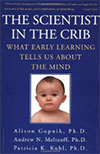
The Scientist in the Crib: What Early Learning Tells Us About the Mind by Alison Gopnik, Andrew N. Meltzoff, Patricia Katherine Kuhl
This exciting book by three pioneers in the new field of cognitive science discusses important discoveries about how much babies and young children know and learn, and how much parents naturally teach them
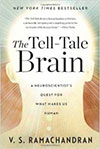
The Tell-Tale Brain: A Neuroscientist's Quest for What Makes Us Human by V. S. Ramachandran
Ramachandran tackles the most exciting and controversial topics in brain science, including language, creativity, and consciousness.
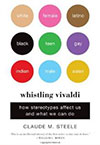
Whistling Vivaldi: How Stereotypes Affect Us and What We Can Do by Claude M. Steele
Claude M. Steele, who has been called "one of the few great social psychologists," offers a vivid first-person account of the research that supports his groundbreaking conclusions on stereotypes and identity.
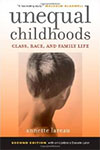
Unequal Childhoods: Class, Race, and Family Life by Robert Harris
Class does make a difference in the lives and futures of American children. Drawing on in-depth observations of black and white middle-class, working-class, and poor families, Unequal Childhoods explores this fact, offering a picture of childhood today.